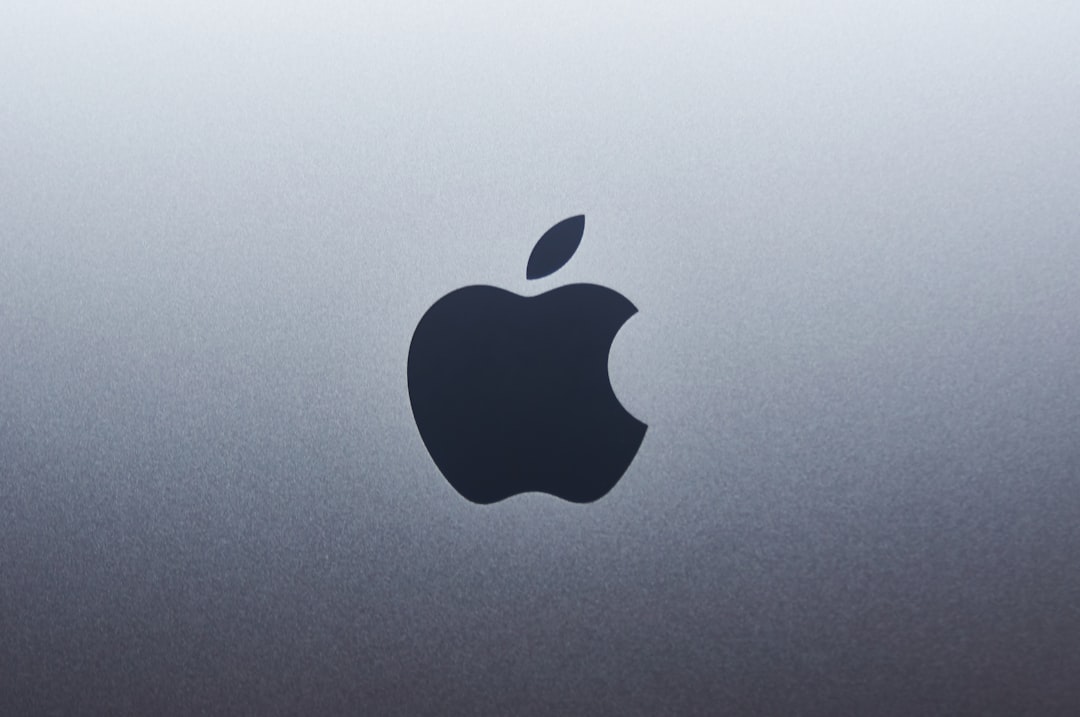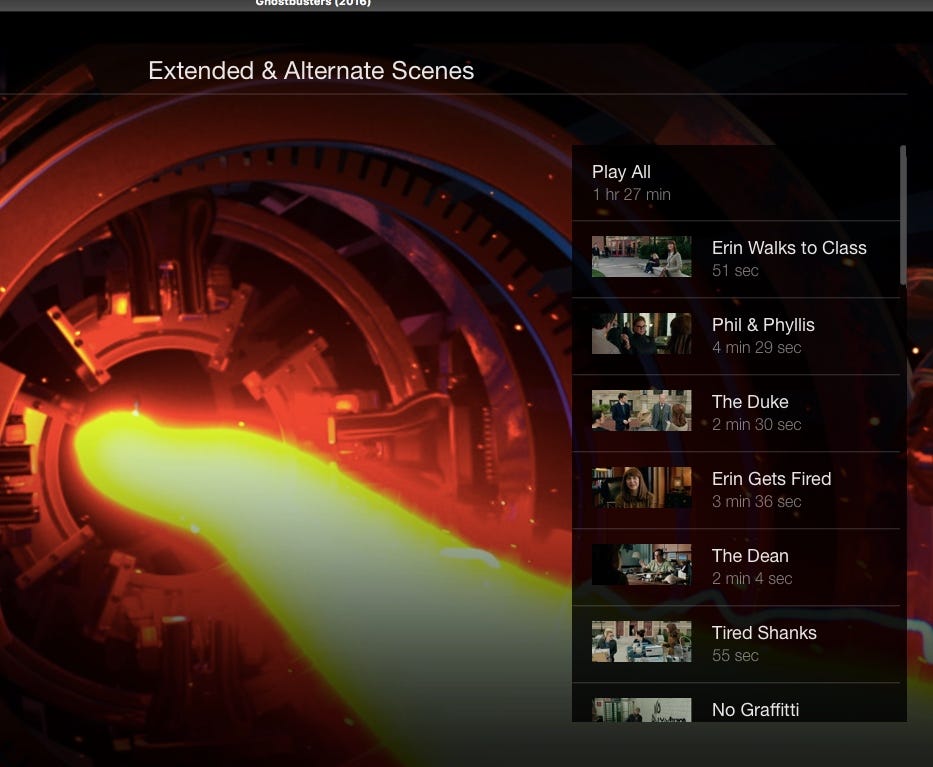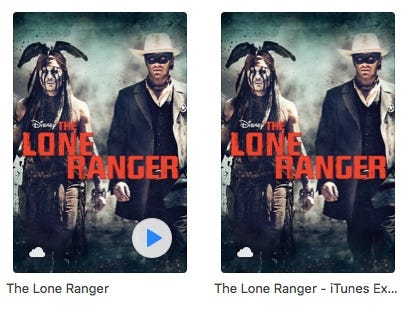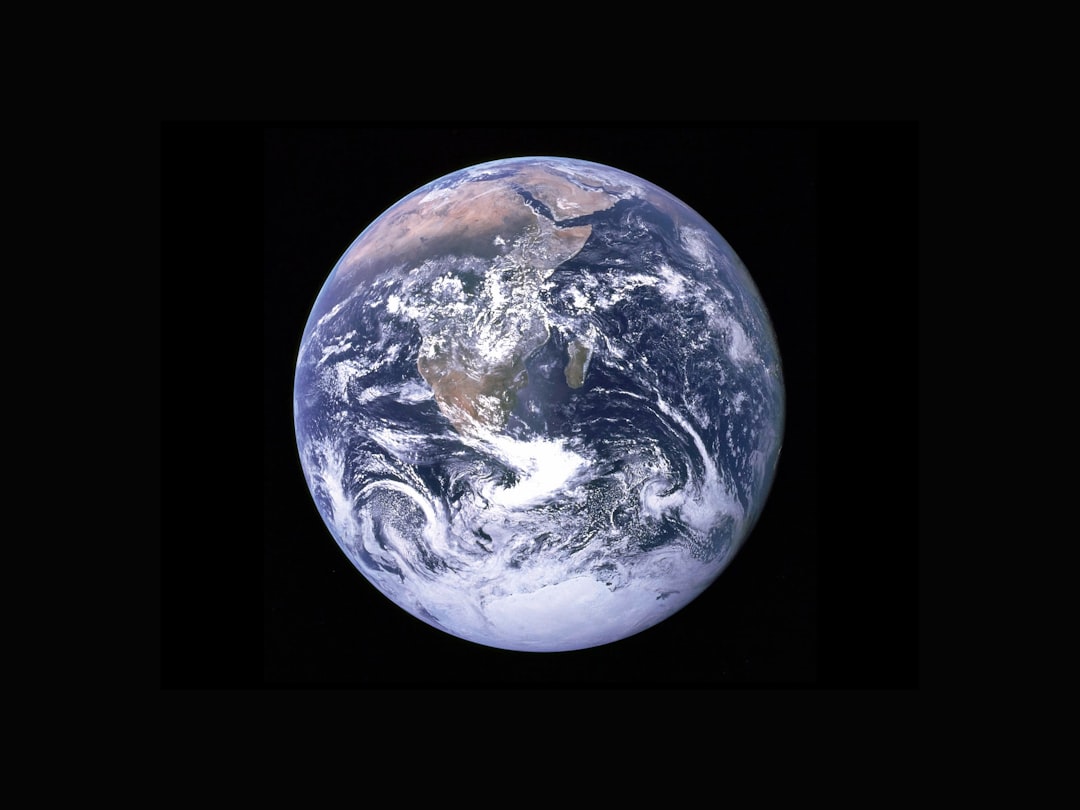Apple TV Lets You Physically Save Your Digital Film Library
And Other Reasons It's a Great Home Video Platform

For many critics, insiders, and enthusiasts, the ongoing content ‘‘purge’’ begun by HBO Max last year is a textbook illustration of the central problem inherent to contemporary digital streaming platforms: the fact that we cannot truly own or keep the digital media we pay for, meaning films and TV shows can potentially vanish from a given streaming platform at any time without warning.
Against this background, physical media delivery technologies, especially Blu-Ray, are promoted as superior to streaming because of their ability to preserve audiovisual works. In other words, if a title is discontinued, you still own your disc copy.
I have no argument against physical media, and indeed continue to regularly purchase Blu-Ray and occasionally rare, out-of-print DVD versions of movies. But I also think there is at least one digital video platform that provides a viable alternative to it: “iTunes,” or as most likely know it today, “Apple TV,” as it allows you to legally download your purchased movies and shows, even Apple TV Plus originals, onto your hard drive. In addition, it provides you with Blu-Ray-comparable audiovisual quality and extra features, while also making it easy to view and share your content abroad.
*Note that rumors of iTunes’ death have been greatly exaggerated. It is still available for those Mac users that hang onto older pre-Catalina iterations of the OSX and allows purchasing the newest video releases.
In this article, I will illustrate these points and so make a case for why iTunes is actually a great home video platform that combines the accessibility and preservation features of physical media with the convenience of digital streaming.
Table of ContentsDownload Movies via Apple to Your Hard Drive
If you own all your movies and music on discs, you’ll have them indefinitely, whenever you want to watch or listen to them. You can still rip those discs to a digital file to watch your content on whatever device you want to. Sure it takes a little more effort to do so, but you still have that disc sitting on a shelf or in a box. And that’s very important.
Here’s why: If all your content is digital only, and your library exists only in the cloud, you don’t actually have those movies. You don’t own them, even if you’ve “purchased” them with your hard earned money. And the studios or streaming services can take them away from you whenever they want to.
Source: a 2018 article by Bill Hunt, editor-in-chief of The Digital Bits, that promotes the purchasing of physical media
To begin, it’s important to establish that modern-day Apple TV is both a pay-per-view streaming platform and a download platform for movies. This means when you purchase a film online, you can either access it from Apple TV’s database or you can legally download a digital copy of it onto your computer, with each film taking up around 5 or so GB of memory.* In the former case, you stream it directly from the Apple TV platform on your desktop or the physical device connected to your television set. In the latter, you watch it from your own computer via the Apple TV/iTunes software after downloading the film files onto your internal hard drive.
* Note that this is definitely the case on desktop computers — I cannot speak for other devices, like iPads.
This means you don’t have to actually download a film in order to watch it (though this used to be a prerequisite, if memory serves me correctly, in the earlier years of the service). But you really should actually go through the trouble of downloading each and every movie you purchase though, because if a content provider removes a title, it will no longer be available for streaming and/or re-download.
If you’ve already downloaded a copy to your hard drive though, you can still watch it from your computer via the Apple TV/iTunes software.*
*I speak from experience. In 2014, Nickelodeon pulled the animated television series The Legend of Korra from virtually all streaming services, including iTunes. This made it impossible to access the first two seasons of the show via the platform unless one had downloaded it previously. Fortunately, I had all 26 episodes backed up on an external hard drive. I do not know, however, if you’d still be able to access it via the Apple TV device that you can connect to your television, for the TVs seem to be stream-only.
Update Note: 12/16/2023An earlier version of this article stated that Apple TV+ content could be downloaded in much the same way. As I’ve since come to discover, this is not entirely accurate. Namely, Apple TV+ Originals can be downloaded and stored but only for a period of one month since the content is first played from your hard drive. After a month, it is removed, similar to a film rental, though a low-data file referencing the content may remain on your drive.
Sadly, this means it is not possible to create a permanent physical backup of your Apple TV+ Original Content. My experience leads me to believe that this restriction was added later, meaning it was not there when the option to download Apple Originals was first permitted.
Whether you purchase movies or shows via Apple TV, it is good idea to get an external hard drive with a considerable amount of storage (eg. 1–2 TB), reassign and move your Apple/iTunes Media library to it, and then make sure to download all the content you want onto it. This creates a physical backup copy of your online movie and TV library, one that you now own. In turn, all future downloads you make via iTunes will also by default go to the external drive.*
*So, if you’re a fan of a show like Infinity Train, and rushed to purchase the series on iTunes following its recent removal from HBO Max, you should definitely download all the episodes to your hard drive if you haven’t already to ensure you don’t lose access to the series again in the future. Should Warner Bros. Discovery decide to pull it from iTunes, you won’t be able to access it online again.
Like with a physical DVD or Blu-Ray disc, you can now take your entire online library pretty much anywhere. More than that, you will be able to access it offline, which makes it a great option for traveling abroad. Imagine being able to watch something from your digital library while on a long flight without internet connection.* Also, in lieu of having to pack or store a bunch of different discs and boxes, you can carry around 200 movies on a single 1TB hard drive. This saves a LOT of space. And space tends to become an issue for a video collector sooner or later.
*Recently, I was able to watch my downloaded copies of The Matrix Resurrections on a five-hour flight with no entertainment options. Similar Digital Platforms, such as Amazon, to my knowledge, don’t really offer the freedom to actually store your content on a hard drive even if they permit some degree of downloading.
Needless to say, this also means that it is now on you to keep your hard drive and its contents safe from harm. You might also consider at some point in the future transferring your data to another drive as hard drives don’t last forever. One accidental drop, and your data might be gone.
High Audiovisual Quality and Extra features
So, much like Blu-Ray copies, Apple’s digital copies can be physically owned and stored. But perhaps more importantly, they rival Blu-Ray in two other key areas: audio-visual quality and supplemental features.
Let me be frank: from a strictly technical standpoint, iTunes copies are qualitatively inferior to Blu-Ray copies, which typically have such a level of resolution that they require at least 25GB of memory. Apple uses compression to ensure its high-definition (HD) Film Copies take up about a fifth of that and so can be effectively streamed or downloaded. What that means is that you indeed trade off some quality for access.* But unless you really try and compare the Blu-Ray and the iTunes version of a film closely, you may never really notice any difference.
*I would suggest reading “Physical vs. Digital Movies” by Dan Helyer for more information on some of the technical aspects of the quality difference.
To put it another way, the quality of a HD iTunes version is high enough that the difference between it and a corresponding Blu-Ray version is negligible. At the same time, HD iTunes versions of movies regularly come packaged with the special features that you will find on Blu-Ray and/or 4k Blu-Ray under the title of “iTunes Extras.”
In fact, since 2014, virtually every new major Hollywood picture has been released with ITunes Extras by default.* So, videophiles used to getting bonus material in addition to the feature should find the iTunes versions at least somewhat appealing.
*It is important to note that iTunes also offers standard definition (SD) versions of movies, which qualitatively correspond to the DVD, and whose differences from the HD releases are far more pronounced. These SD releases also do NOT come with extras, likely as a means to incentivize the consumer to purchase the more expensive HD release.
Having purchased the film, be it on desktop or Apple TV device, you can then load it from your library. This will take you to a main menu, where you can, among other things, play the film, browse its chapters, or go to the “Special Features” page, much as with a DVD or Blu-Ray menu.
*Rival digital platforms such as Vudu and (the now defunct) Ultraviolet, neither of which I utilize, appear to have a similar policy, but iTunes was apparently the trendsetter, having introduced ITunes Extras back in September 2009.

iTunes Extras are often mostly, if not fully, equivalent to the Special Features of a corresponding physical Blu-Ray release. In some cases, the ITunes version may be missing some features, such as the audio commentary tracks available on The Hobbit trilogy’s Extended Edition Blu-Rays. In others, it might actually have additional or exclusive features that you can’t find on the Blu-Ray.
The ITunes version of the 2016 Ghostbusters movie, for instance, includes a whopping 87 minutes of “Extended and Alternate Scenes” that are not included on its US Blu-Ray releases. Similarly, the ITunes release of It Follows (2014) features deleted scenes that so far appear to be absent from all physical platforms.
This distinguishes ITunes releases considerably from similar pay-per-view and streaming-only competitors, most of which offer little to no extras, focusing instead on the film itself. Amazon, for instance, appears to sell both feature-less versions and “with bonus content” versions of select theatrical titles, but it doesn’t approach the presentation of a movie with special features as standard practice.
Not to mention, the Amazon interface makes it difficult to actually access special features when they ARE available.
From this perspective, it would not be unfair to say that owning an Apple digital copy of a given film is virtually identical to owning a Blu-Ray. The one caveat is that, in many cases, you can’t actually download the special features themselves in addition to the movie. Most ‘iTunes extras’ are accessible via Streaming only. Should a user retain a hard copy of a title that has been pulled from ITunes, then the Extras become unavailable, which is also what happens when one tries to view the movie offline.
iTunes extras used to be downloadable alongside a movie - and so limited only to desktops - up until 2014. Because of this, HD Purchases of movies with iTunes Extras took up a LOT of memory, up to 25-30 GB per title. This was probably unfeasible, so Apple changed iTunes Extras to streaming only, allowing them to appear on Apple TV as well. Subsequently, they renamed the older approach as “iTunes Extras (Original)” and these may still be available for download, if you’ve purchased certain titles prior to July 10, 2014.* For more information, I suggest the following guide.
*Since the initial publication of this article in April 2021, the iTunes Extras (original) feature may have been fully discontinued by Apple though I cannot fully confirm this at the moment.

Easy circumvention of geoblocking
Having mostly compared Apple with physical media platforms, I now want to draw some comparisons with other digital streamers as well as expand on what I said about iTunes being a great option when traveling. See, if you’d ever gone outside the US and tried to watch your favorite streaming platform, such as Netflix or Hulu, you might’ve come up against the issue of “geoblocking,” which is basically when a provider restricts content availability based on your geographic location.
Often attributable to licensing or local copyrights, it is a common issue when it comes to streaming flm and TV over the web. Even when you are able to access a service abroad, you might find yourself with a very different media library than the one you are familiar with.* This also makes it difficult for streaming subscribers to share certain media content with family and/or friends that live in other countries (by providing them with login information or setting up individual profiles for access).
*For instance, multiple shows available in European countries on Netflix, such as the DC superhero series Titans, do not appear on the US version of Netflix and vice versa. Similarly, movie purchases from Amazon and YouTube, though still available for viewing in the US, might get removed from your library due to licensing issues in Europe.
As far as I know, iTunes is considerably less restrictive than Amazon, Netflix, YouTube, or other streamers when it comes to media content geoblocking. Putting aside the fact that you can take a hard drive or computer with your iTunes library of media content on it overseas, pretty much any movie or TV show you purchase in the US iTunes store can be easily streamed via Apple desktops and Apple TV abroad, as long as they are connected to your US account.
So, if you want to share a movie that you bought in the US with friends or family living abroad, you should be able to do that by giving them your account information and having them log-in either to iTunes or Apple TV.* Similarly, if you travel abroad without having downloaded a copy of the film, you should still be able to stream it, provided you do not change your iTunes country/regional setting.
*I should note that this was tested before Apple introduced the “Family Sharing” option, which allows for sharing media without sharing account information, so I don’t know how this works in such a case.
In effect, your “region” setting determines which iTunes store you are logged into. When you change your region setting, you basically log into another country’s ITunes store, something the platform itself may prompt you to do. Doing so means you might not be able to access any of the purchases you made in the previous region, media or otherwise, unless you change it back.* So, if you move to a different country and want to retain your media and other purchases in full, you should consider creating a second Apple ID/ITunes account, as recommended in this article.
*An example of this situation occurred in 2018, when user Anders da Silva moved from Canada to Australia and found that apparently, a number of his ITunes film purchases went missing. Initially, the cause was blamed on said titles having been removed from ITunes, with critics warning that this illustrated how Apple “can delete your purchases,” but it later turned out that this was apparently a region-related issue.
Conclusions
Overall, when you consider all these factors, it becomes evident that iTunes/Apple TV offers a greater degree of movie ownership and control to users, as well as more closely approximates the experience of buying movies on physical media than many of its contemporaries, while simultaneously providing the convenience of digital access.
Imagine being able to store an entire library of movies in high-definition quality on a single hard drive, as well as to share it with others easily and legally across great distances. Imagine being able to actually download a streaming platform’s original exclusive series and store them on your hard drive. Taken together, these qualities make iTunes a truly great platform for buying and watching film/TV.
Again, I want to reiterate that I’m not advocating for people to stop collecting phy-sical media versions of movies. But I also believe that it is not a crime to get digital versions instead, especially as physical collections become increasingly difficult to maintain due to practical space considerations and many titles are repeatedly reissued in higher levels of digital quality. So, if you’re a movie buff or a cinephile that desires both digital access and ownership, then I’d say iTunes is your best bet.
Agree or disagree? Think there are better or more convenient digital platforms than Itunes?
If you like this article or found it useful, then please make a custom one-time contribution to my tip jar to help keep my publication up and running. I really appreciate your support!
You might also be interested in:





Although iTunes allow you to save movies to local, it's still restricted by DRM, that's why the movies you purchased are no longer available once you switch your account to another region. The once-and-for-all solution is using a third-party software to output it to an drm-free video file that you can play on any device. You can check: https://www.dumpmedia.com/apple-music-converter/itunes-movie-wont-play.html
Great read. I tend to only busy physical for my favorite films, and digital (iTunes when possible) for everything else. As you said, I can't tell the difference between HD digital and Blu-ray. I've never thought about backing them up before, and I happen to have a 2 TB HDD just sitting around... :)